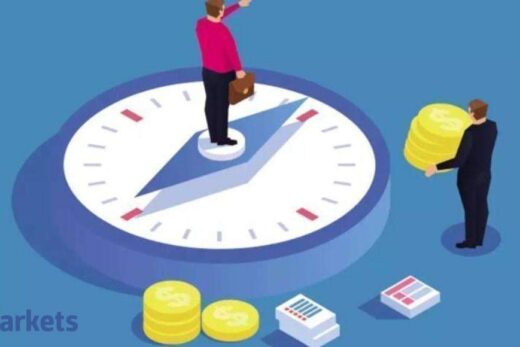The jaw-dropping performance for domestic equities has been driven by aggressive monetary and fiscal policy support from RBI and the government as well as a faster-than-expected rebound in corporate profits.
While replicating the performance of 2020-21 in the next financial year will be difficult for the stock market, investors are still enthused by the prospects of strong returns, as corporate earnings are projected to grow over 35 per cent and the economy at more than 10 per cent in the financial year that begins on April 1.
Some, though, argue that the best of the bull market may likely be behind us, and cautioned investors against extrapolating this year’s performance into the future.
“It is likely that the returns will moderate significantly next year… you can expect some investors to move back to the defensives in the coming months,” said Amit Kumar Gupta, head of portfolio management services at Adroit Financial Services.
There are risks emerging for equity investors on the horizon, even though the real economy is expected to do better in the coming quarters.
Chief among the risks is what will happen with global bond yields, and whether the bond vigilantes will force the US Federal Reserve to bring forward its path of normalising the unprecedented policy actions it took to protect the US and, by extension, the global financial system from the pandemic.
US Treasury bond yields, which form the fulcrum of asset pricing models around the world, have risen over 50 basis points in recent weeks to hover around 1.5 per cent currently. Many believe it is just a matter of time before the 10-year US Treasury yield tops 1.8 per cent, and perhaps even 2 per cent.
The bearishness among bond traders has been sharper in India, where the Reserve Bank of India (RBI) has been struggling to convince the market it has yields under control.
Domestic bond traders are a worried lot, as they watch global crude oil and commodity prices rocket to multi-year highs, which may feed into core inflation, and the government prepares to dump truckloads of bonds next financial year.
Record low global bond yields accompanied by high liquidity underpinned the performance of equities in 2020-21. Now as they lift off, the case for owning expensive equity markets like India becomes less attractive.
Secondly, a fresh spike in Covid cases in India is making investors twitchy in their seats. The country is seemingly witnessing a second wave of the pandemic, as cases have risen sharply not only in Maharashtra — again the epicentre of the pandemic — but also in other states like Madhya Pradesh, Gujarat, Uttar Pradesh and Delhi.
“…the risk of a second wave in India has risen materially. We believe this can lead to near-term growth concerns and delay market expectations on the timing of policy normalisation,” Nomura Financial Advisory and Securities India said in a note.
While a national lockdown remains highly unlikely, localised lockdowns could dampen mobility in the country in the coming weeks and make economists reconsider their rosy growth expectations for the next financial year, analysts said.
Thirdly, India’s slow rollout of vaccination has underwhelmed investors, who had expected the country to deliver on its ambitious rollout target. India is currently inoculating roughly 1.4 million citizens a day, which is sharply lower than the ask rate of roughly 5 million or so vaccinations per day for the Phase I rollout.
Nomura expects India to vaccinate 30 per cent of its population by the end of 2021, but at current pace, that target will be missed and force investors to dial back expectations of a normalisation in the economy.
Lastly, a fast maturing bull market is likely to radically slow down the pace of inflows from foreign portfolio investors going ahead. Brokerage firm Morgan Stanley on Tuesday advised its clients to consider moving out of ‘early-cycle’ trades like emerging market equities to ‘mid-cycle’ or ‘late-cycle’ trades like developed market equities and low-quality credit.
“Our cross-asset strategy team thinks there is a 60% probability that the model moves to the mid-cycle ‘recovery’ phase within the next 12 months, and a 15% chance that it jumps straight to the late-cycle ‘expansion’ phase over that time horizon,” Morgan Stanley said in a note.
The brokerage believes portfolio bets like emerging market equities and high-quality corporate debt that gave rich returns will be most vulnerable when the shift in regime happens over the coming months.
“My sense is that returns will become increasingly stock-specific… days of making ‘easy money’ in the market sort of may be over,” Gupta said.



